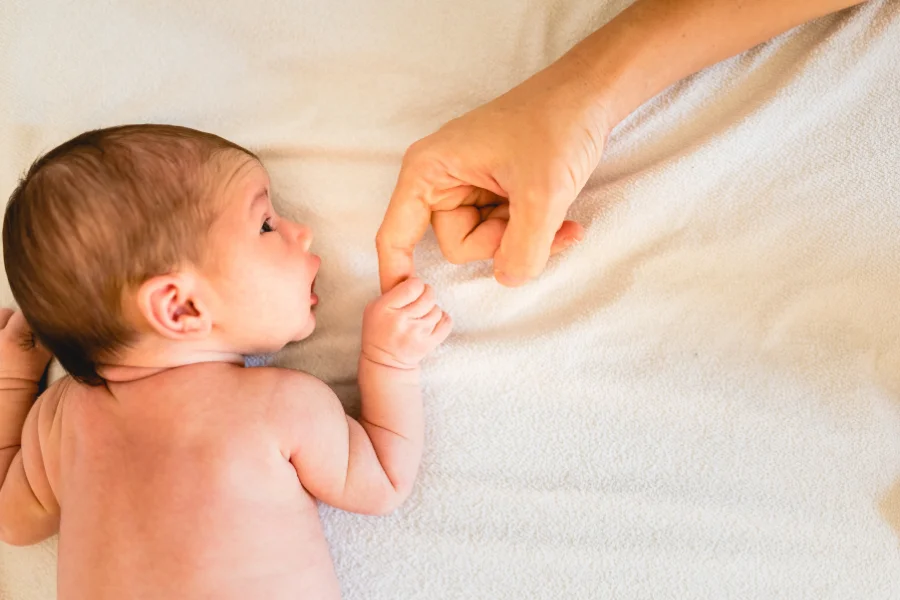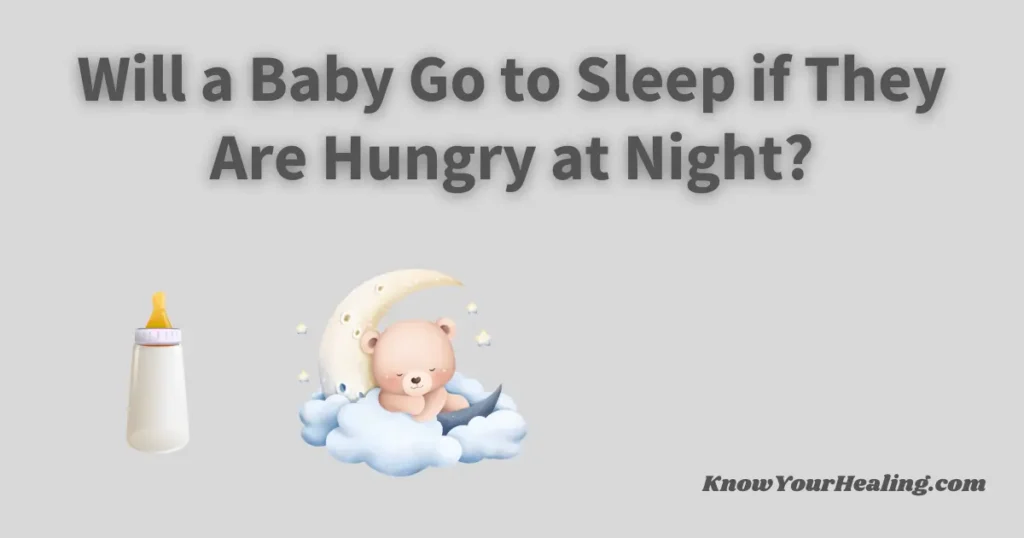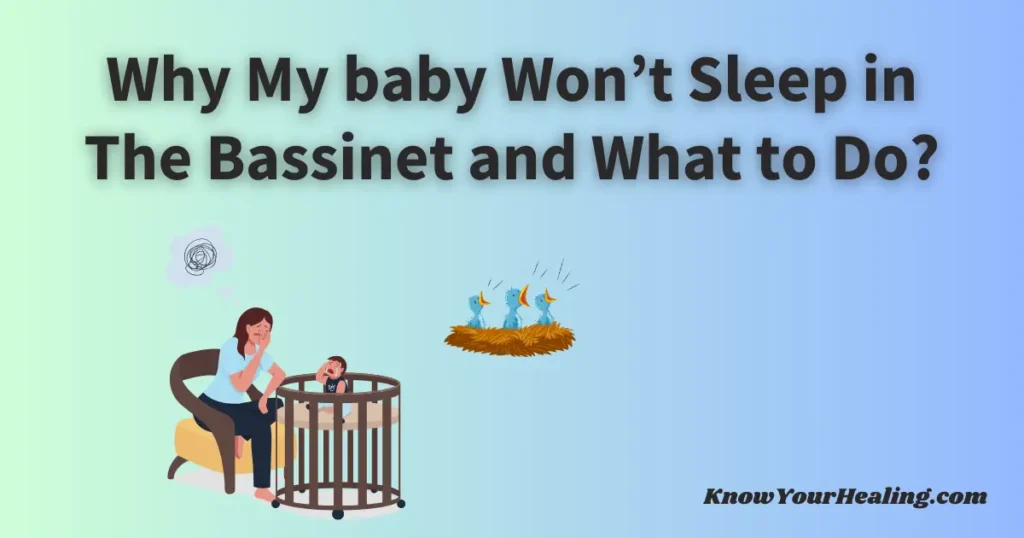Baby smacking lips while sleeping is a common concern for many parents, as they wonder if it indicates hunger or discomfort.
This action is typically a normal and soothing behavior that helps babies feel secure as they sleep.
In this article, you will discover why babies engage in this behavior, explore whether any medical concerns may need attention, and learn tips on ensuring a peaceful night’s sleep for both baby and parent.
Lip-smacking can often signify that a baby is self-soothing, helping it relax into a deeper sleep.
Sometimes, it might also signal readiness for feeding as they are about to wake up.
Resources like Healthline explain this rhythmic motion as comforting for babies.
Parents looking for ways to manage or understand this behavior are in the right place. The article aims to reassure caregivers, provide insights into typical baby sleep habits, and address concerns without unnecessary alarm.
Contributions from expert insights and practical advice will be included to support parents in navigating this aspect of infant care.
Understanding Newborn Sleep Patterns

Newborn babies go through different stages of sleep that help them grow and develop.
Recognizing these stages can provide valuable insights into a baby’s needs, such as understanding the cause of lip-smacking or other baby sleep noises.
The Importance of REM Sleep
REM sleep, or Rapid Eye Movement sleep, is crucial for newborns as it encourages brain development and helps them process early experiences.
Babies might exhibit noisy sleeping behaviors in this stage, including lip smacking or irregular breathing.
These are often normal behaviors and signs of dreaming or cycling through active sleep, essential for their overall health.
Young babies spend about half of their sleep in REM, which supports memory and learning.
New parents may notice that their sleeping baby often shows rapid eye movements or light tremors.
Though these can look like abnormal movements, they are usually just signs of their brains working hard.
Regular patterns of REM sleep signal that a baby is getting the rest they need.
If any unusual patterns or signs of distress occur, parents should seek medical advice from a pediatrician to ensure the baby’s health is not impacted.
This awareness can guide new mums in recognizing when their baby might be hungry or experiencing discomfort, leading to more effective responsive feeding practices.
Normal Behaviors and Sounds During Sleep

Newborn babies often exhibit unique behaviors and make various sounds while they sleep. Recognizing these may help new parents understand their child’s needs and reassure them that many sounds are normal.
Common Noises and Movements
Sleeping babies are known for producing a range of noises, including grunting, gurgling, and even snoring.
These sounds are common signs of a noisy sleeper, usually due to their developing respiratory systems and normal periodic breathing during infancy.
Irregular breathing can occur, and while it might seem concerning, it often balances out as the infant matures.
During REM sleep, movements such as twitching and stretching are part of the sleep cycle.
These movements are often linked to the baby’s growth and development.
Caregivers need to understand that these are typical and signal normal development.
Consulting a healthcare professional is advisable if concerns about the baby’s health or abnormal movements persist.
Why Infants Make Lip-Smacking Sounds
Lip-smacking during sleep is observed in some infants and usually points to self-soothing or comfort mechanisms.
This can happen during active sleep when the baby is transitioning between different stages of sleep, such as light and deep sleep.
It can also hint at the baby’s hunger cues, indicating the need for feeding or that the baby didn’t have a full feeding earlier.
Parents might notice lip smacking is most common in the early days or months of life as infants adapt to self-regulating behaviors like soothing.
This behavior is generally not a cause for concern. However, if paired with other symptoms like poor weight gain or signs of distress, it might be wise to seek medical advice.
Hunger and Feeding Cues

Baby smacking lips while sleeping can signal hunger or feeding needs. Recognizing and responding to these cues can benefit new parents and young babies, ensuring that the baby’s needs are met and promoting healthy weight gain.
Understanding these signals can also help avoid unnecessary nighttime wake-ups.
Identifying Hunger through Lip Movements
Lip-smacking can be a common sign that a baby is hungry.
This behavior may appear during sleep cycles, particularly during lighter stages of sleep, like REM sleep, especially in young babies.
When babies smack their lips, it can indicate they are ready for a feeding, even if they appear to be sleeping.
This behavior might accompany other cues, such as sucking motions or turning the head.
Babies communicate their hunger primarily through body language and small, subtle gestures.
Paying attention to these cues can significantly impact understanding a baby’s needs.
For new mums, learning these behaviors can provide valuable insights into their baby’s hunger cues and feeding schedules.
Responding promptly with full feedings can ensure enough milk for adequate nourishment.
This responsive feeding approach is essential for maintaining a good milk supply and supporting the baby’s growth during its early days.
Newborn babies rely on these signs to indicate their needs, and lip-smacking should not be ignored.
It is also essential to consider other factors, such as normal periodic breathing in infancy or irregular breathing, to distinguish hunger from other underlying medical conditions.
When in doubt, consulting a team of experts, like those from the American Academy of Pediatrics, can offer peace of mind and professional advice.
Physical and Developmental Reasons for Lip-Smacking

Baby smacking lips while sleeping can be due to various physical and developmental factors. These include teething, affecting sleep patterns, and certain neurological conditions that may influence lip-smacking behavior.
Teething and Its Impact on Sleep Behavior
Lip-smacking can often be linked to teething, especially in newborn babies.
Babies might experience discomfort as teeth emerge, leading to unusual sleep behaviors.
Drooling and chewing on objects are common signs of teething, often accompanied by restless sleep.
The pain relief actions by babies typically include moving their lips, which can result in smacking sounds.
During these months, babies might exhibit changes in their sleep cycles, cycling more frequently between light sleep and deep sleep phases.
This can be disconcerting for new parents, leading to noisy sleep.
In these early days, parents should ensure their child is comfortable, potentially discussing with pediatricians if sleep disruptions persist or additional symptoms arise, ensuring attention to the baby’s needs.
Movement Disorders and Neurological Conditions
Lip-smacking might also indicate movement disorders or other neurological conditions.
In some young children, this behavior can be linked to conditions on the autism spectrum disorder, where repetitive actions, including lip movements, are observed.
While it is a rare cause, occasional smacking might be due to underlying medical conditions, which require attention and possibly a comprehensive evaluation by a team of experts.
Abnormal movements during sleep could also highlight issues within the baby’s respiratory systems or signal irregular breathing.
These behaviors are constructive factors that new mums should monitor closely.
If a baby’s health is concerned, including poor eye contact or other behavioral problems, it’s advisable to seek medical advice promptly.
Self-Soothing Techniques and Behaviors

Baby smacking lips while sleeping can be a common sign of self-soothing, helping to relax and calm the baby.
This behavior often occurs during different sleep cycles and may be linked to feeling secure and comfortable as they drift into deeper sleep.
The Role of Sucking and Lip-Smacking in Self-Soothing
Lip-smacking is often a self-soothing technique for young babies.
It can help them feel safe and secure in different stages of sleep, such as REM sleep, where rapid eye movements are common.
This behavior can be particularly noticeable during the newborn months when they have not established their sleep patterns.
It’s good news for new parents to know that lip-smacking is normal behavior, indicating a baby’s attempt to comfort itself.
Understanding these cues can help parents provide responsive feeding if hunger signs are present.
Babies might also make other baby sleep sounds, showing they are self-soothing or adjusting to new sensations.
These noises should not cause concern unless accompanied by signs of distress, which may require consultation with a pediatrician.
Recognizing a baby’s cues helps respond to their needs effectively, ensuring a peaceful night’s sleep.
For more insights into baby sleep patterns, visit reputable sources like the American Academy of Pediatrics.
Health Concerns Related to Sleep Behaviors

Newborn babies often exhibit unique sleep behaviors, including lip-smacking and other sleep noises.
While these are usually normal, specific patterns might indicate an underlying concern that requires further observation. Recognizing these signs is essential for ensuring a baby’s health.
When to Worry About Lip-Smacking and Sleep Noises
Lip smacking and various noises during sleep are ordinary in infants and are usually part of normal behavior.
However, young babies can sometimes exhibit these behaviors due to their respiratory systems adjusting or when they experience gastroesophageal reflux disease.
If these sounds increase significantly or are accompanied by irregular breathing or signs of distress, new parents should seek medical advice from a team of experts or a pediatrician.
Abnormal movements or excessive sleep noises could indicate developmental disorders or conditions on the autism spectrum disorder.
Watching for additional symptoms like poor eye contact or lack of social interaction is crucial.
Lip smacking can be related to various sleep cycles, persistent behaviors, and other signs requiring evaluation.
If a baby’s cues suggest discomfort or distress, it’s essential to determine whether enough milk or proper feedings are provided.
Responsive feeding that aligns with a baby’s hunger cues ensures proper nutrition and helps avoid problems related to excessive lip smacking or noises.
Attentive observation during a baby’s sleep can provide valuable insights into their health and well-being.
Professional Guidance and Parental Actions

New parents often seek advice when they observe their baby smacking lips while sleeping. Understanding their baby’s needs and determining whether lip smacking is normal behavior or a signal of an underlying cause can provide peace of mind and ensure proper care.
Consulting with Pediatric Experts
Pediatric experts are valuable resources for understanding a baby’s sleep patterns and behaviors.
If you have concerns about lip-smacking, it’s advisable to consult professionals, especially if other signs like irregular breathing or weight gain accompany it.
Consulting a pediatrician can help assess whether the behavior is normal or related to health concerns such as gastroesophageal reflux disease or respiratory problems.
Early intervention is crucial for any abnormal movements or signs of distress.
Experts can monitor any concerning symptoms and guide on whether further evaluation by a specialist is needed.
The American Academy of Pediatrics emphasizes addressing symptoms that might affect a baby’s health or growth during their vital early days.
Home Care Strategies and Monitoring
Parents can take specific actions to monitor and address their baby’s lip-smacking at home. Ensuring the baby receives full feedings can reduce signs of hunger, minimizing the likelihood of lip-smacking as a hunger cue.
Newborn babies often have noisy sleep. Recognizing common signs of discomfort, like irregular breathing, can help improve their sleep environment.
Parents should be aware of their baby’s cues. Responsive feeding techniques and close observation during REM or deep sleep stages can provide insights into whether these sounds are normal behavior.
The good news for new parents is that many young babies outgrow these behaviors as their development progresses. Keeping track of sleep patterns and consulting experts when necessary can contribute to a restful and healthy sleep routine.
Final Thoughts
Baby smacking lips while sleeping can be a normal behavior. It often serves as a comforting action, helping them self-soothe.
Parents might notice this at night, especially if their child is hungry or trying to settle down.
This habit may also indicate readiness for a feeding schedule adjustment. Babies have small stomachs, so frequent waking for feeding isn’t uncommon.
Observing these cues can help parents respond to their child’s needs better.
Understanding these signs can reassure parents. Consulting resources such as Healthline’s article on baby-smacking lips or other parenting guides can be beneficial if needed.
Regularly monitoring a baby’s behavior helps ensure their well-being during sleep.
Parents should also consider any unusual patterns. If lip smacking seems persistent or abnormal, seeking guidance from healthcare professionals is advisable.
Knowledge about typical baby behaviors aids in nurturing their health and comfort.
Knowyourhealing.com offers further insights into managing and interpreting sleep behaviors.
By understanding common lip-smacking reasons, parents can create a soothing sleep environment.
Baby smacking lips while sleeping provides valuable information about their needs and habits.




